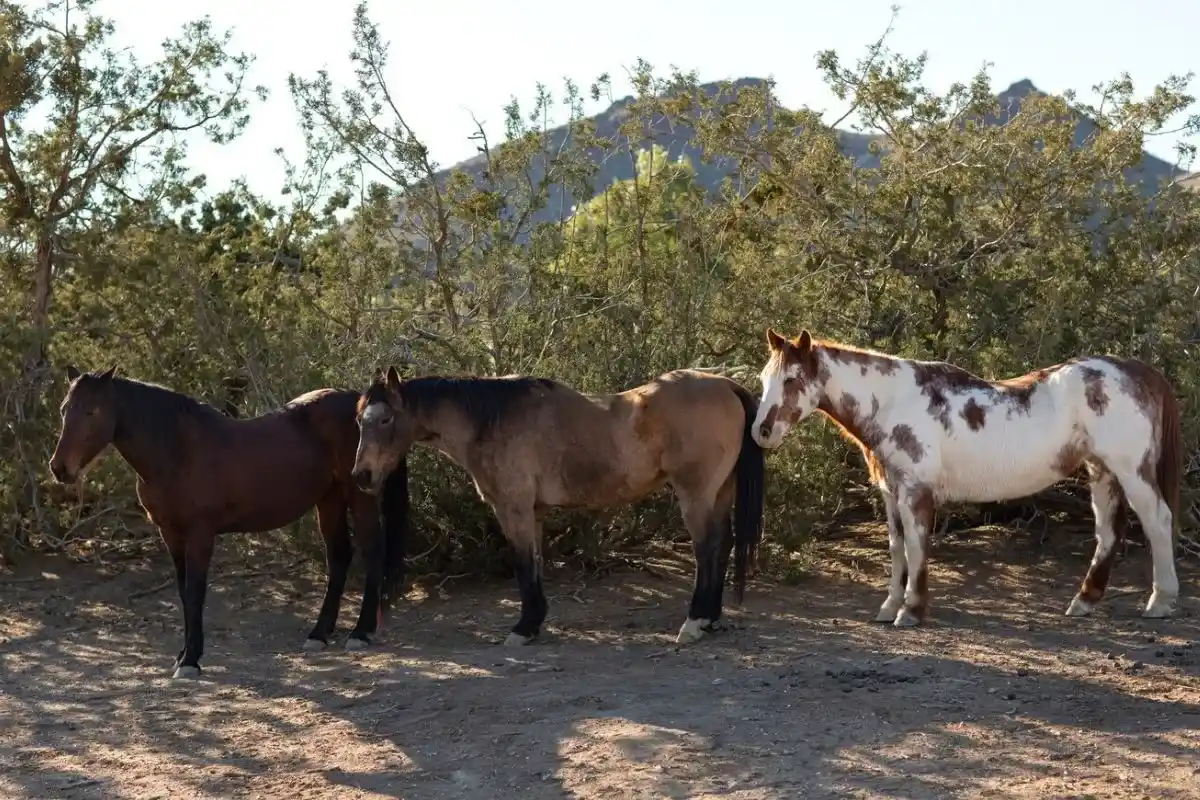The role of equines in agroforestry systems is both valuable and underappreciated. These animals contribute significantly to sustainable farming practices. Understanding their impact can lead to more effective land management.
Equines provide natural benefits that are often overlooked. Their presence helps maintain ecological balance. This article delves into how they support sustainable farming.
We explore various ways horses and other equines enhance agroforestry. Through practical examples, the importance of these animals becomes evident. Their contributions to environmental conservation are noteworthy.
The Importance of Equines in Agroforestry Systems
Equines play a pivotal role in agroforestry systems. Their physical strength is key for various farming activities. They help in soil preparation, transportation, and land management.
Using equines reduces the reliance on heavy machinery. This approach minimizes soil compaction and preserves soil health. It aligns with sustainable farming goals.
Equines also support biodiversity. Their grazing patterns help maintain diverse plant species. This balance is crucial for sustainable agricultural systems.
Equines as Natural Land Managers
Equines are excellent natural land managers. Their grazing helps control plant growth. This prevents the dominance of any single species, promoting biodiversity.
These animals contribute to invasive species management. They naturally keep such species in check. This reduces the need for chemical herbicides.
Equines’ hoof action helps aerate the soil. This improves water infiltration and root growth. Overall, their presence enhances soil quality.
Benefits to Soil Health
Equines improve soil health in multiple ways. Their manure is a rich organic fertilizer. It adds vital nutrients to the soil, aiding crop growth.
Manure also enhances soil structure. It improves moisture retention and reduces erosion. This contributes to long-term soil fertility.
These animals help in breaking down organic matter. Their activity promotes the decomposition process. This releases essential micronutrients into the soil.
Equines and Sustainable Farming Practices
Equines align well with sustainable farming practices. They provide an eco-friendly alternative to machines. This reduces carbon footprints and pollution.
Their use in agroforestry systems encourages organic farming. Equines help manage crops without synthetic chemicals. This supports healthier ecosystems.
Adopting equines can cut down operational costs. They require less maintenance compared to heavy machinery. This makes sustainable farming more affordable.
Supporting Environmental Conservation
Equines contribute to environmental conservation. Their manure encourages healthier, more resilient crops. This reduces the need for artificial fertilizers.
They help maintain natural resources. Equines’ grazing habits promote the growth of native plants. This supports local wildlife and their habitats.
Conservation efforts are aligned with their use in agriculture. These animals work in harmony with nature. This synergy is vital for long-term sustainability.
Practical Examples of Equine Contributions
There are numerous practical examples of equine contributions. In some regions, horses are used for plowing and field preparation. This is a sustainable alternative to tractors.
In community gardens, donkeys help with transportation of goods. They substitute for fuel-powered vehicles. This cuts down on carbon emissions.
Farmers have integrated equines into rotational grazing systems. This enhances pasture health and extends grazing periods. It’s a win-win for both animals and the land.
Challenges and Solutions in Using Equines
Despite many benefits, using equines has challenges. These animals require proper care and management. Neglect can lead to health issues and reduced productivity.
Striking a balance between technology and traditional methods is essential. Incorporating equines in modern farms requires planning. This ensures seamless integration and efficiency.
Training and education are also crucial. Farmers need to be skilled in handling these animals. Developing such skills can be an initial hurdle.
Providing Adequate Care
Providing adequate care is paramount for equine well-being. Proper nutrition and regular veterinary check-ups are essential. This ensures they stay healthy and productive.
Equines need ample space for grazing and exercise. Confinement can lead to behavioral and health issues. Adequate shelter is also necessary to protect them from harsh weather.
Maintaining their hooves and teeth should not be overlooked. Regular trimming and dental care prevent common ailments. This contributes to their overall longevity and performance.
Integrating Technology and Tradition
Integrating technology and tradition can be mutually beneficial. Advanced farming tools can complement the use of equines. This creates efficient and sustainable farming systems.
For example, precision farming techniques can enhance field management. When combined with equine labor, it maximizes productivity. Such integrations can lead to innovative farming solutions.
Leveraging data from smart farming devices helps monitor equine health. GPS collars and activity trackers provide valuable insights. This aids in better animal management and care.
Future Prospects
The future prospects of equines in agroforestry are promising. As sustainable farming gains traction, their role becomes more significant. Equines offer a harmony of tradition and innovation.
Global movements towards organic and eco-friendly practices favor their use. Equines can revolutionize how we approach farming. Their contributions to environmental stewardship are indispensable.
Research and development in this area are also expanding. Studies on equine impact on agroforestry systems are growing. This knowledge base will continue to evolve, benefiting future generations.
Equine-Assisted Farming Education
Upcoming generations need equine-assisted farming education. Training programs can equip farmers with necessary skills. Practical knowledge is vital for effective equine utilization.
Institutions can offer specialized courses. This can cover areas such as animal husbandry and sustainable farming. Hands-on training ensures comprehensive understanding.
Connecting farmers through networks and communities is beneficial. Sharing experiences and best practices can foster learning. This collective knowledge strengthens agroforestry systems globally.
Harnessing the Power of Equines
In summary, equines play a crucial role in agroforestry systems. Their impact on sustainable farming, land management, and conservation is profound. Understanding and harnessing this power can lead to more resilient agriculture.
By integrating equines into our farming practices, we embrace sustainability. These animals offer practical solutions to modern challenges. Their role in preserving our natural resources is undeniable.
For those looking to adopt such practices, the future is bright. Equines provide a path to more sustainable and eco-friendly farming. It’s a journey worth embarking upon.
Frequently Asked Questions
How do equines benefit soil health?
Equines benefit soil health by aerating it with their hooves and enriching it with organic manure, fostering better soil structure and fertility.
Can equines reduce the need for chemical herbicides?
Yes, equines can reduce the need for chemical herbicides by naturally managing invasive plant species through their grazing patterns.
What are some challenges in using equines on farms?
Challenges include the need for proper care, balancing traditional methods with technology, and the necessity for specialized training and education.
How do equines support biodiversity?
Equines support biodiversity by maintaining diverse plant species through controlled grazing, which prevents the dominance of any single species.
Is there a future for equines in modern sustainable farming?
Yes, the future is promising as equines offer sustainable solutions to farming challenges and support global movements towards organic practices.

